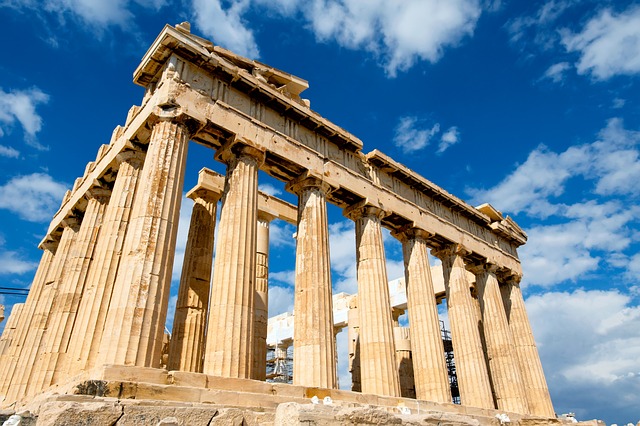
Panhellenism seeks the union of the Hellenic peoples.
Panhellenism is a movement that promotes the union of all Hellenic peoples . It is a current that was born in Ancient Greece .
Great Greek State
The emergence of Panhellenism is located around the 5th century BC . At that time, several thinkers began to promote the creation of a State capable of uniting nations with inhabitants of Greek ethnicity and language.
The clashes between the polis, however, threatened the growth of Panhellenism. In any case, the common traditions were taken as a meeting point by the theorists of this doctrine.
The most remote origins of this idea are found in the 5th century BC. C., and in fact it took a long time to reach considerable importance. At first, it was simply spread by some thinkers who were not willing to accept the decline of their culture that threatened the Persian Wars and, already at the peak, that of the Peloponnese .
Despite its lack of mass acceptance, this ideal has had sympathizers since ancient times. It is curious that at that time when the people had the same enemy they felt united but at the head of each region there were polis (city-states that did not depend on Greece) that usually showed hostility towards the others, even through internal wars.
Creation of Isocrates
Isocrates (436 BC – 338 BC) is noted as the creator of the concept of Panhellenism. This educator and logographer expressed his position in dozens of speeches. Two other important names associated with this concept are Alexander the Great and Philip II .
In addition to the creation of this concept, Isocrates is remembered as an important educator, politician, and orator of ancient Greece. Thanks to his father's business, which used slavery to make flutes, he enjoyed a comfortable life . In fact, both he and his two male brothers received a high-level education; Note that she also had a sister, named Anacus , but women could not access education at that time.
His training allowed him to access the Choregy, a form of public service that consisted of covering the expenses of the choirs hired to celebrate the dramatic and lyrical competitions of the different religious festivities.
A larger unit
It can be said that Panhellenism marked a break, since it proposed starting to think about a greater or universal unity, leaving aside the notion of a closed community. That is why there are those who find the seed of globalization in Panhellenism.
Panhellenism grew during the so-called archaic era , when a feeling of cultural unity began to be registered among the Greek peoples. There were events and festivities that helped reinforce this idea, including panhellenic competitions such as the Nemean Games , the Isthmian Games , the Pythian Games and the Olympic Games .
It is often said that Panhellenism re-emerged at the beginning of the 19th century , before Greek independence from the Ottoman Empire . Later, its postulates remained in force with the annexation of different territories and even in the framework of various war conflicts.

A similar concept, enosis, pursues the annexation of Cyprus to Greece.
enosis
This concept is part of Panhellenism, and in fact it was considered a synonym for it starting in 1967, since it refers to the movement that seeks to unite Greece with the island of Cyprus. The relationship between the two was accentuated after World War II , within the framework of a military junta that requested precisely this unification.
Turkey soon invaded Cyprus to confront this movement: it did so in 1974, and in the north of the island it established its Turkish Republic, something that divided the territory into two states.
